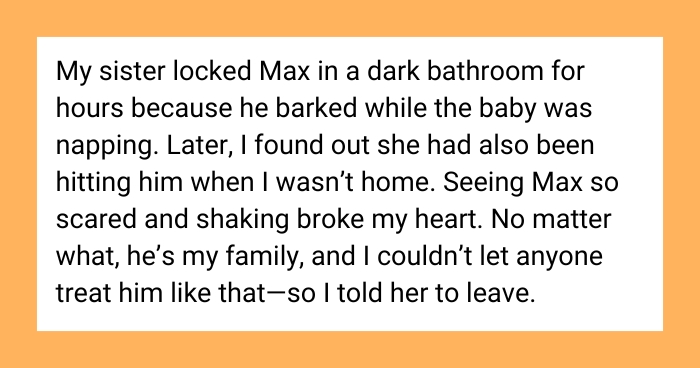‘AITA for kicking my sister and her baby out after what she did to my dog?’ ‘I had to teach him a lesson.’
The Original Poster(29M) is at war with his younger sister (25F) because he caught her disparaging his favorite golden retriever, Max, and in this emotional battle. The sister and her six-month baby was moved in with OP after a messy split. They are both men, and OP was just doing what any decent person would do — giving her a free roof over her head. At first glance, it all went smoothly until OP spotted some alarming signs from Max. Max was once a happy and social dog, but before long he was cowering in the corner.
OP’s sister then took the cake by cruelly locking Max in a dark bathroom for hours to punish him after he barked while the baby was napping. When we confronted her about the abuse, she downplayed it as “teaching a lesson” and said it was “just a dog”. In the end, OP thought things were resolved after giving the newly married couple a pretty serious talking-to until a nearby neighbor came over to tell them that, while OP was gone, they were still screaming, and that they bothered to listen into the apartment and hear Max wailing like crazy. When OP confronted his sister again, he was informed that she had been beating the dog in an attempt to control him. That OP then told his sister she has 24 hours to fuck off and is furious and feels betrayed. And now, relatives are heaping guilt onto him, claiming among other things that she is a struggling single mother and should be given sympathy. OP Beams Refuses to have any one be foul to his Dogen.
Read for more info Reddit
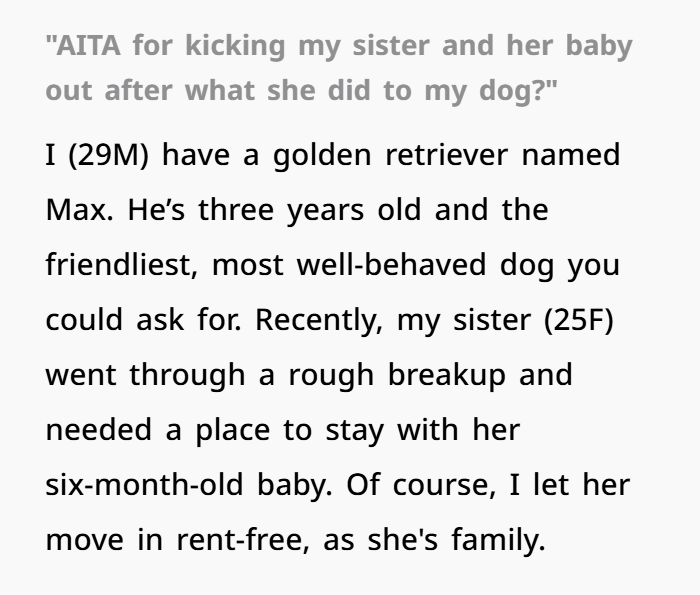


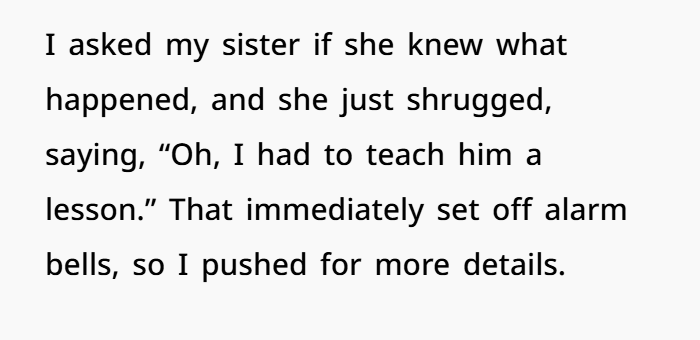
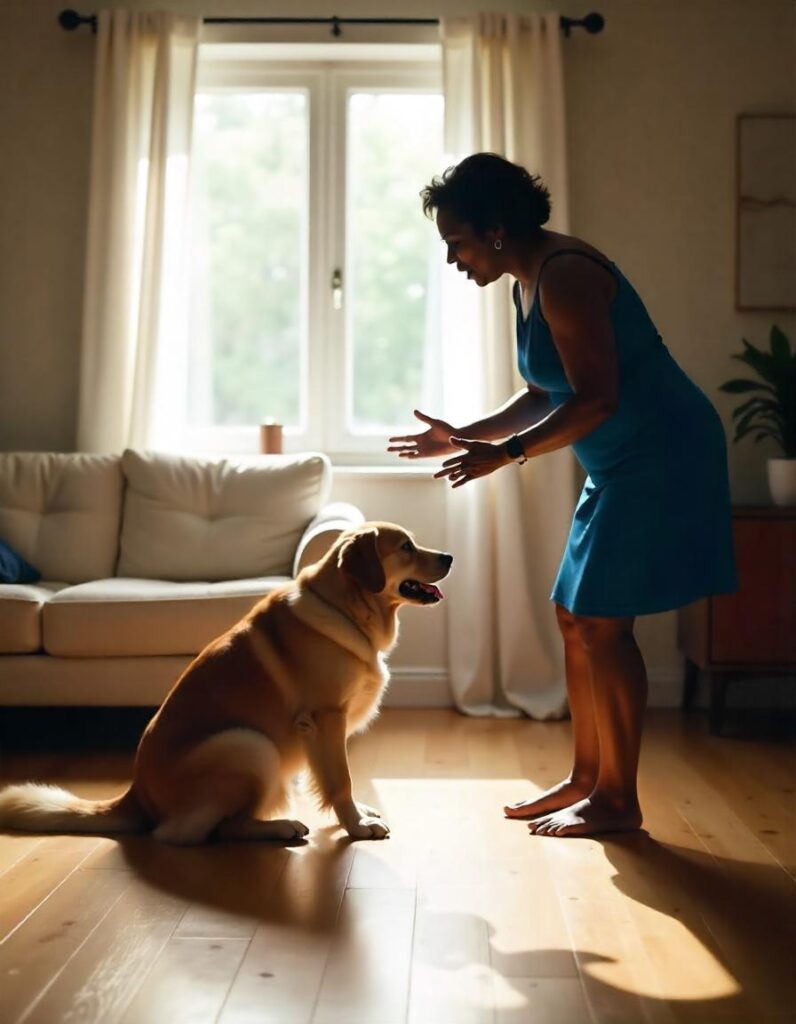


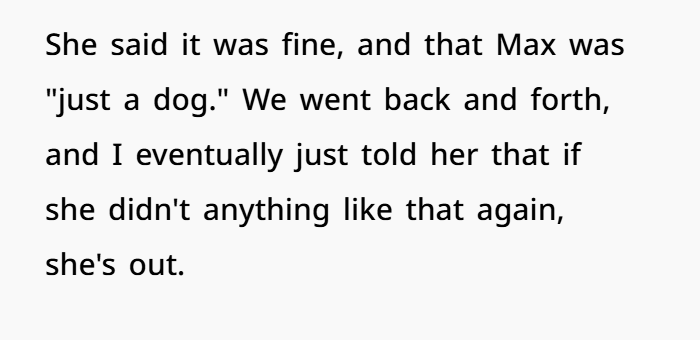
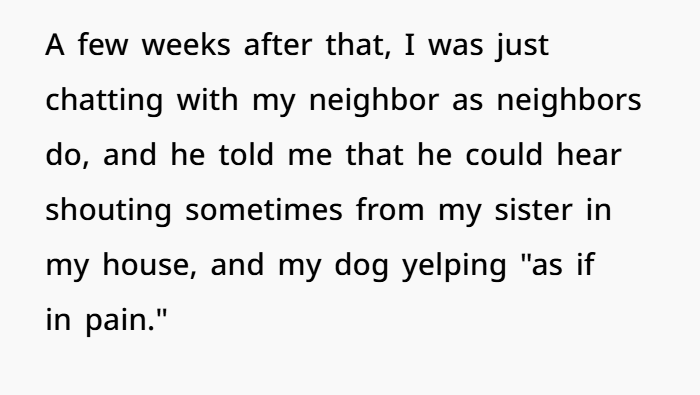

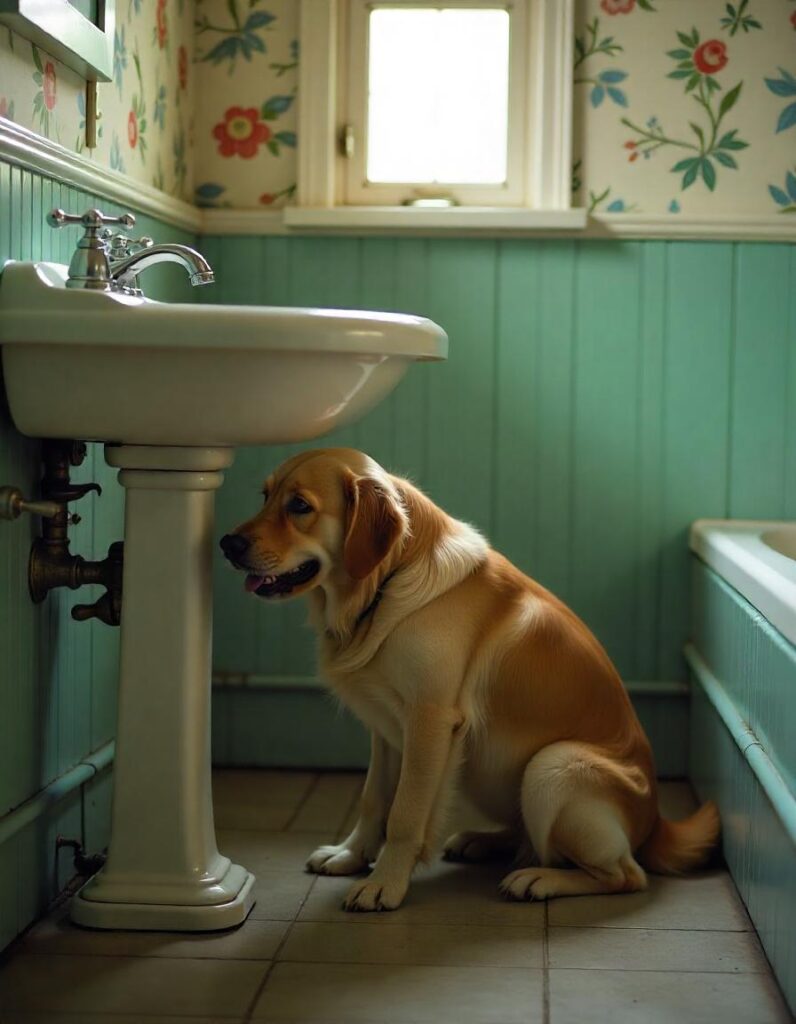
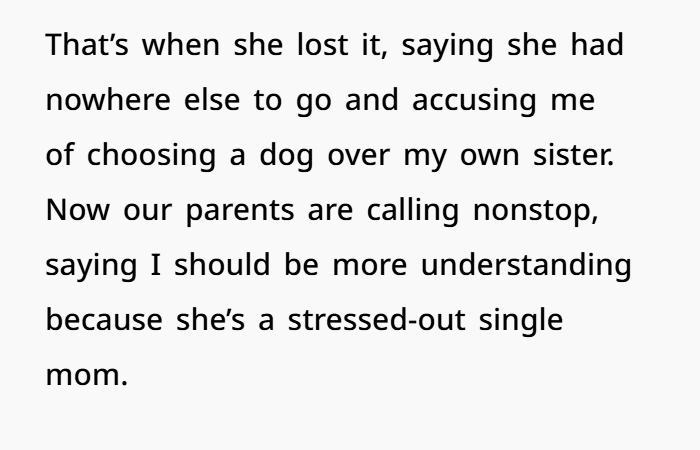
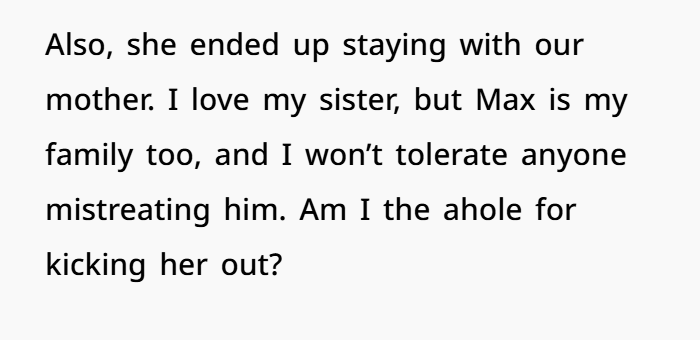
Legally speaking, OP’s instincts to protect his dog are not only understandable on an emotional level but also possibly backed by animal welfare legislation. Isolating a dog for hours in a dark room or physically hitting it would be considered animal cruelty or animal neglect in many (if not all) U.S. states and countries. For example, California Penal Code § 597 makes it illegal to maliciously cruelty to an animal, and most jurisdictions have statutes to this effect. If the situation got out of hand or persist, OP should be able to phone animal protectors.
On a psychological level, the sister’s treatment of Max indicates a troubling lack of compassion for animals — a trait that some studies correlate with general behavioral warning signs. According to a study featured in The Journal of Interpersonal Violence, animal abusers also might have problem controlling their anger and a lack of empathy (Ascione, 2005). When the sister dismisses Max as “just a dog,” it can show ignorance of the role that pets play in many households — emotionally and socially. Max behaves like many dogs do under trauma (shakes, hides, flinches) — classic signs of trauma that many animal behaviorists have documented soon after a traumatic experience.
The family vs protection of a dependent animal ethical dilemma is a broader question. Sure, society has a tendency to prioritize family (single mothers, etc.) but that doesn’t justify abusive behavior. Our pets are our companion beings with sentience, not property. According to the AVMA (American Veterinary Medical Association), pet owners have a moral obligation to care for the welfare of their animals.
But what is worse is what it does to the child. Even babies and toddlers can be traumatized by seeing violence (even with animals). According to the Studies in Child Abuse & Neglect (Currie, 2006), even indirect exposure to aggression can have a lasting emotional effect on children, unintentionally normalizing aggressiveness within them.
And also, all in all, OP did the right thing, because if you ask me, when a parent is protecting their child (his pet) from another child showing extreme behavior, that is a good impulse to be having, even if they were to say the spoiled child showed extreme behavior. And it indicates emotional maturity that we understand enabling bad behavior—no matter the source of the struggle—helps more than hurts in the long run.
Here’s what top commenters had to say about this one:

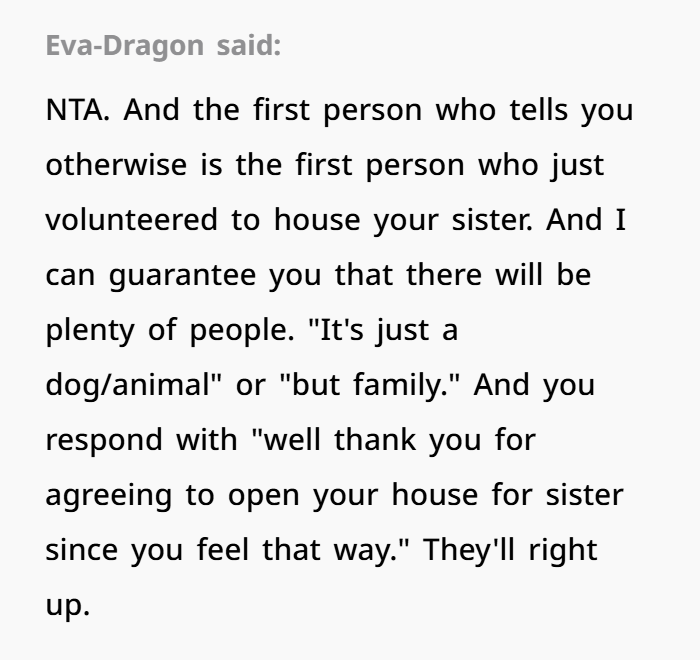
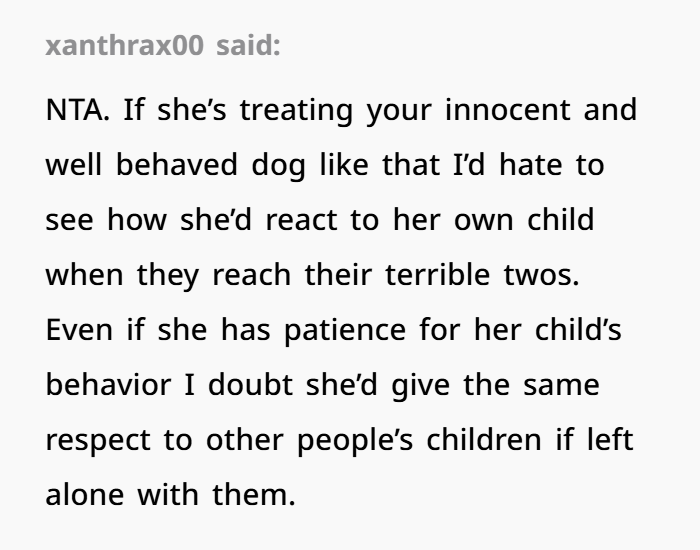
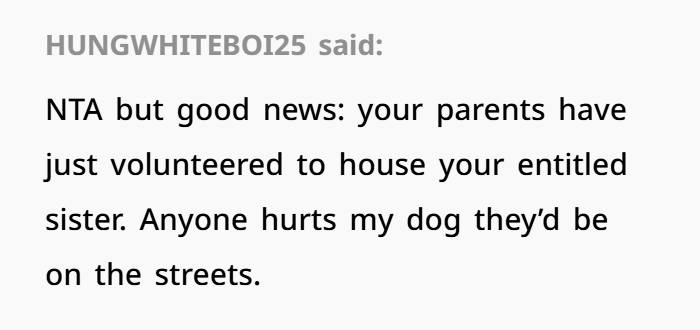


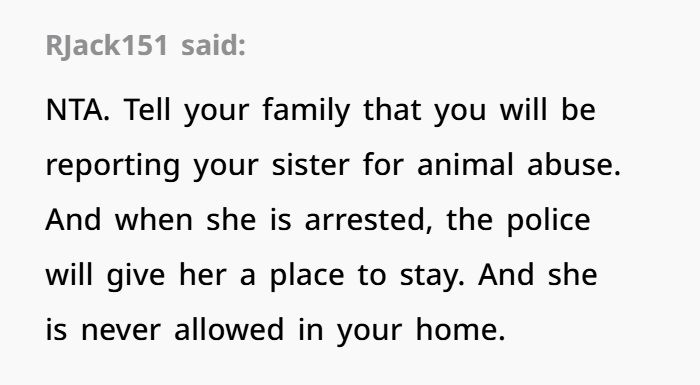
OP’s actions were justified when considering all the moral, legal, and emotional aspects that come into play. The “asshole,” he wrote, was not the person trying to shield an innocent creature from cyclical harm. It hurts to be ostracized by family, but OP is doing the right thing by prioritizing safety and empathy over family loyalty, and rightfully so; most of us would agree that some values—namely, moral responsibility—should come before family loyalty in situations involving abuse or any kind of mistreatment.

